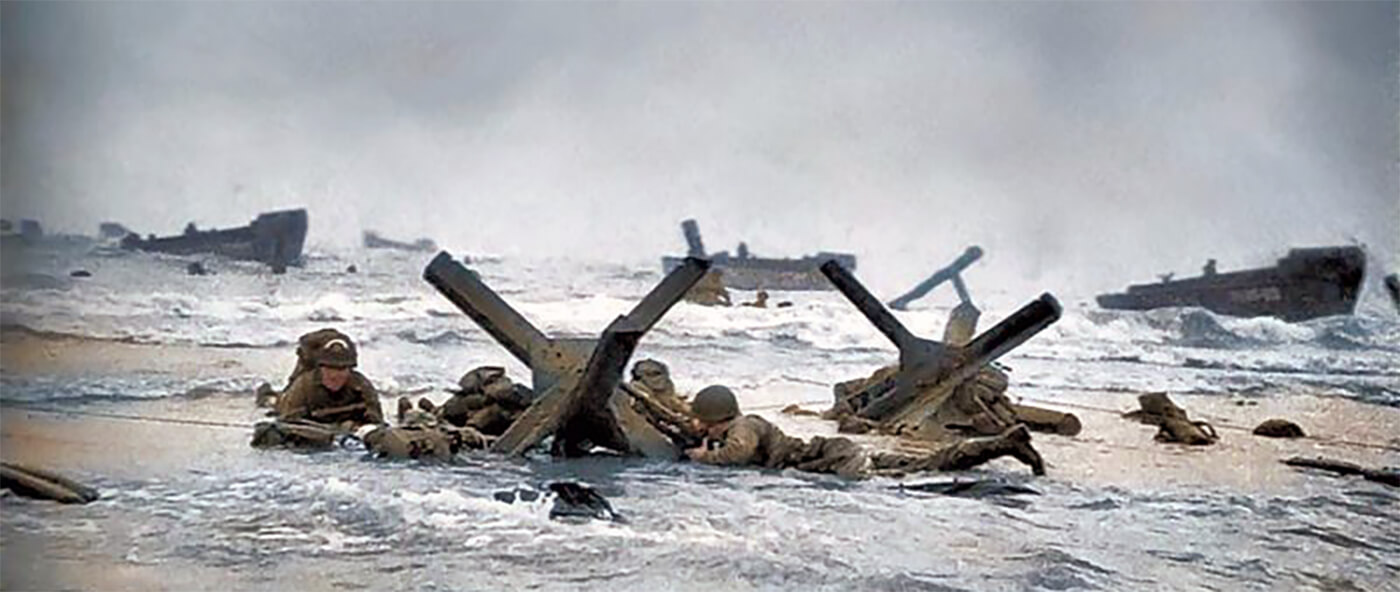| Special Forces Operations in June 1944 |
| June 6th, 1944 |
| Coup de Main |
| 6th Airborne Division, Glider Pilot Regiment |
| 181 men of 2nd Oxfordshire and Buckinghamshire Light Infantry, the 249 Field Company (Airborne) and 12 men from the 1st Wing, B Squadron, Glider Pilot Regiment. Their mission is to capture and holdthe bridges over the Caen Canal and the Orne River to secure the Eastern flank of Operation Overlord in Normandy, France. In the early hours of June 6th, 1944, Major John Howard and the Oxfordshire and Buckinghamshire Light Infantry (Ox and Bucks) execute a crucial mission to capture Pegasus Bridge and Horsa Bridge in Normandy. After landing in gliders near the bridges, they swiftly secure the objectives, surprising the German defenders. Despite heavy sniper fire and counterattacks at dawn, the Ox and Bucks, reinforced by the 7th Parachute Battalion, held their ground. Around 13:00, reinforcements led by Lord Lovat and Piper Bill Millin arrived, boosting the defence with additional troops and Churchill tanks. German attacks persist throughout the afternoon, but the defenders successfully repel them. By mid-afternoon, the intensity of the attacks decreases, and the 6th Airlanding Brigade arrives to further strengthen the position. Major Howard hands over the bridges to the 2nd Battalion, The Royal Warwickshire Regiment, and rejoins his battalion in Ranville. Despite losses, the operation is a success, preventing German counterattacks from threatening the Allied landing forces. |
| June 6th, 1944 |
| Operation Overlord |
| No. 10 (Inter-Allied) Commando, 1er Bataillon de Fusiliers Marins Commandos |
| 177 men of No. 1 (French) Troop and No. 8 (French) Troop, No. 10 (Inter-Allied) Commando or the 1er Bataillon de Fusiliers Marins Commandos, commanded by Capitaine de Corvette (Lieutenant Commander) Philippe Kieffer. The troops disembark from their Landing Craft Infantry at 07:31 hours on Sword beach, on the east of the Allied landing near Colleville-Montgomery. They are the first to be unloaded in this sector. Their primary objective is to achieve a breach five hundred metres to the west of Riva Bella in support of the 3rd Infantry Division. Although suffering significant losses, the commandos seize the 50 mm anti-tank gun hidden in a small bunker. This position disabled Landing Craft Infatry 523 (No. 1 Troop). They then take the former Casino de Riva-Bella before advancing between Colleville and Saint-Aubin-d’Arquenay to meet the British paratroopers of the 6th Airborne Division at Pegasus Bridge (Bénouville), arriving around 16:30 hours. There, the French commandos occupy the perimeter of the lime pit towards 20:00 hours. By the evening of June 6th, 1944, they have lost almost 25% of their personnel with twenty-seven killed in combat, and many wounded including their commander Kieffer, who is wounded twice during the day. |
| June 17th, 1944 – June 19th, 1944 |
| Operation Sunbeam |
| Royal Marine Boom Party Detachment |
| Royal Marine Boom Patrol Detachment’s ‘Earthworm’ Detachment. Six men in three Canoes. Their missing is to attack German Destroyers in the Harbour of of the Island of Leros, Aegean Sea. The destoyers could interfere in a later planned Raid on the Island of Simi, known as Operation Tenement. Three pairs of Royal Marine canoeists infiltrate the harbor and successfully plant limpets on the destroyers and several smaller escort vessels. The subsequent detonation of the charges results in significant damage to the German ships, effectively neutralizing the naval threat in the area. This allows the Allies to proceed with Operation Tenement on Simi, with reduced risk of interference from German naval forces. |

